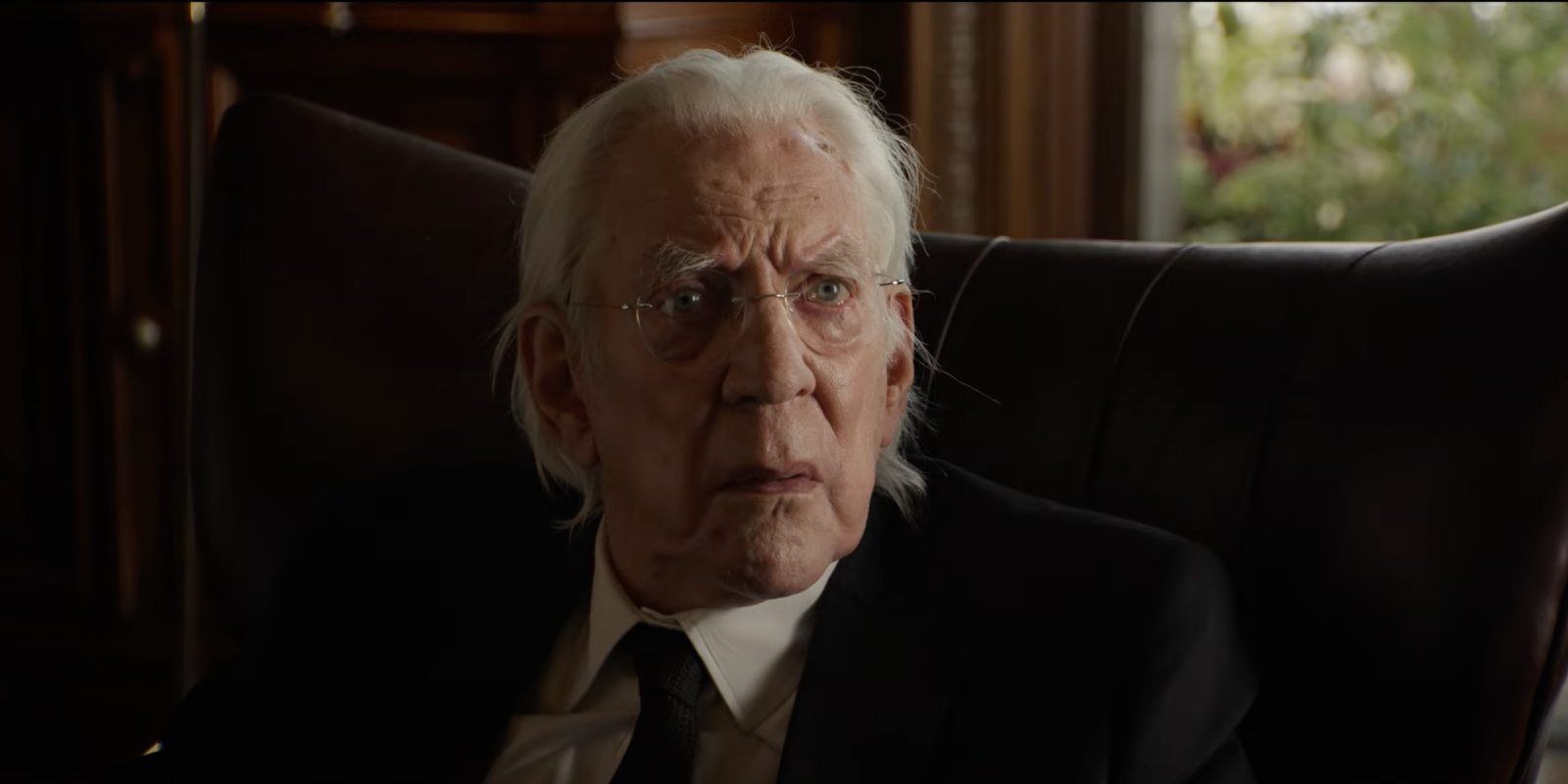Mr. Harrigan's Phone director John Lee Hancock reveals that Stephen King was very involved in this particular film adaption of his work. Mr. Harrigan's Phone premiered on Netflix on October 5 and is a film adaption of King's novella of the same name from his If It Bleeds collection. The horror film follows a boy named Craig (Jaden Martell) after hew befriends an elderly man named Mr. Harrigan (Donald Sutherland), who gifts him a phone. After Mr. Harrigan passes away, Craig continues using the phone and calling Mr. Harrigan's old number to vent about his problems. He soon learns that Mr. Harrigan's spirit is still receiving his calls beyond the grave.
SCREENRANT VIDEO OF THE DAY
Mr. Harrigan's Phone is the latest King adaptation to hit screens. King has written 65 novels and numerous short stories, which mainly fall into the horror genre. Over the decades, his work has fueled countless film and TV adaptations as filmmakers draw inspiration from his brilliant stories. King is often honest about his feelings toward the projects based on his works. Some of them, such as The Shining, King hated for discrepancies from his work. Menawhile, others, like Stand by Me, earned his approval and praise. Mr. Harrigan's Phone is one film that received his feedback during its production.
In an interview with Screen Rant, Hancock reveals that King was very involved in the development of Mr. Harrigan's Phone. Hancock took advantage of this, and consulted and received King's approval or input on several aspects of the film, such as its script and locations. Check out his statement below:
Very involved. He wanted to stay out of the way and let me do my thing, but he let me know that he was there for me, and so I started taking advantage of that. When I finished the script, we sent it off to Stephen, and it's like, "Oh, I hope he likes it," because he can just give us a thumbs down, and we're done. But he loved the script. And so from that point on, we had an email and phone relationship that was really, really helpful and great.
We would be looking at locations, and I could send him something and go, "Which one of these two looks like Howie's Market? Because you made up the name, Howie's Market, and you had something in your mind's eye when you wrote it. Which one of these?" And he would say, "I think the one on the left with the red. I think that feels more like what I was thinking." Okay, great. We got Stephen's approval on this location.
King's Involvement Suggests Good Things For Mr. Harrigan's Phone

The increased involvement of King suggested good things for Mr. Harrigan's Phone. Generally, when an author is involved to a large extent in the film adaption of their work, expectations for the project grow higher. Most assume that the author's involvement means that the adaption will adhere closer to the source material and, thus, will resonate well with fans of the original work. In some of King's adaptations, such as the recent remake of Firestarter, which failed badly both critically and commercially, it is easy to see how deviations from the source material caused many of its failings. Perhaps feedback from King could've given the filmmakers a better vision of what Firestarter should have looked like.
An author's involvement in a project is, undeniably, valuable, though it isn't a sure-fire way of making an adaption succeed. After all, films like The Shining, which didn't utilize King's involvement extensively and also received disapproval from him, actually have received a more favorable reception as time went on. Meanwhile, early reviews for Mr. Harrigan's Phone have been mixed-to-negative so far. The most common complaints, though, is that it is more a coming-of-age story than a terrifying horror film. It remains to be seen what fans of the original King book think of Mr. Harrigan's Phone and how King's involvement influenced it.
